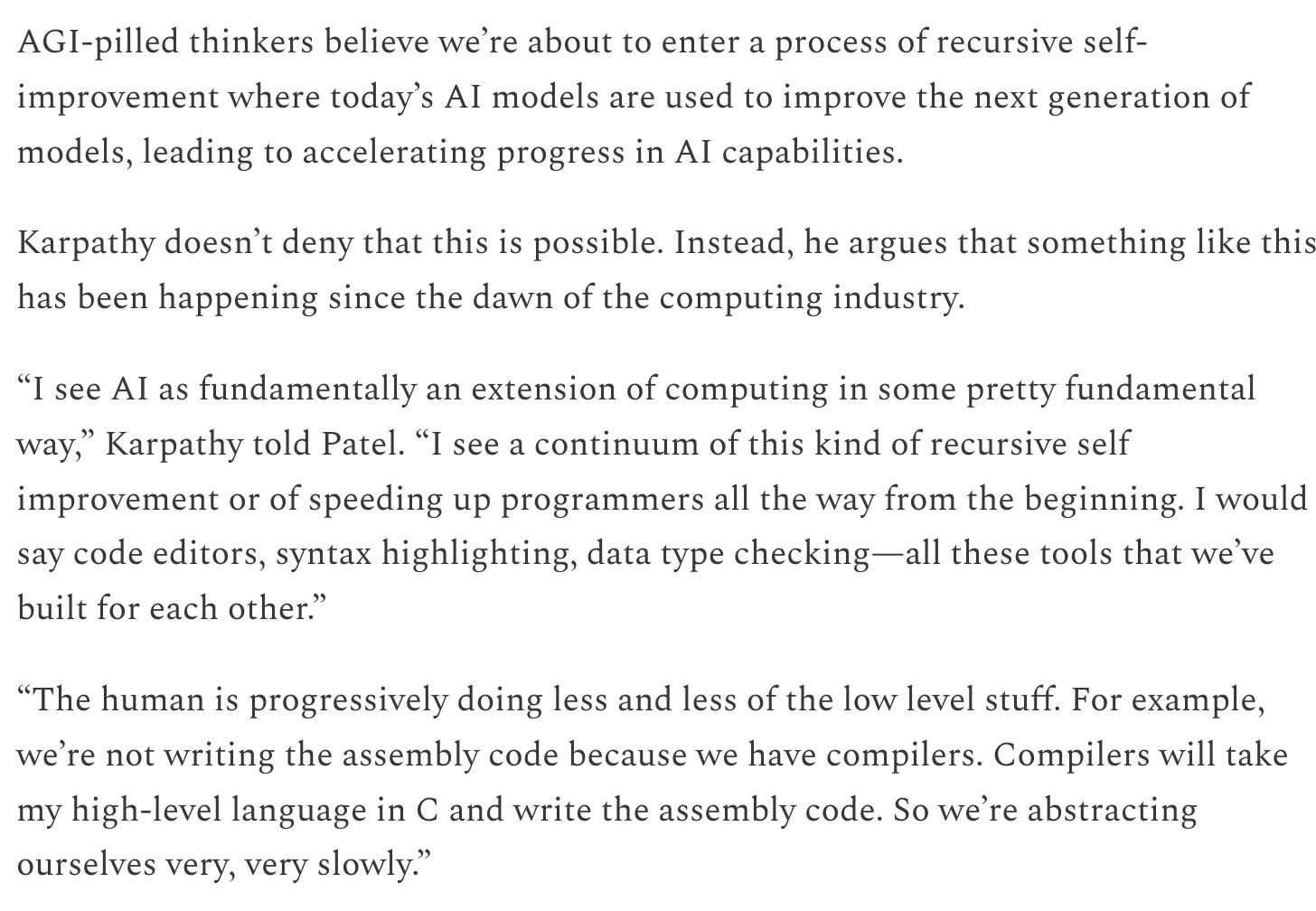Is AI going to collapse software pricing?
Short post today, just some brief food for thought.
A lot of software bears are operating under the presumption that AI (specifically the productivity gain from using AI to develop software) is going to lead to a massive increase in the supply of software, and consequent collapse in software pricing and unit economics.
The chain of reasoning goes something like this: Cost of building software drops dramatically —> Way more new entrants —> Competitive intensity way up —> Price collapse.
I am a little suspicious of this argument.
The reason is that AI is not the first or only major productivity unlock in the software development field. You can look at things like shared libraries, APIs, development frameworks, modern IDEs, Stack Overflow, Slack, GitHub, open source, no-code, etc. as prior accelerants of developer productivity.
Taking into account all these improvements over the past 30 years, developer productivity has increased 10×–100× depending on measure, yet median SaaS gross margins remain solidly at ~75%1.
Have barriers to entry to building a software company gone down over this span? In some ways yes but some ways no. While it’s certainly the case that a lone developer or small team can get a lot more done in a shorter amount of time, the bar for what constitutes “good enough software to sell” has gone straight up. It still takes at least a few quarters (often closer to a year or two) to put together a product that is commercially viable and can command meaningful margin.
It strikes me that when a new enabling technology is truly democratic, meaning that it can be utilized by new entrants and incumbents alike2, we should not anticipate “disruption” but rather an increase in the quality of the end product.
The chain of causation would instead look something like: Software developers get way more powerful —> Quality bar for software goes up —> No big marginal impact on barriers to entry, vendor concentration, or pricing —> But everybody gets amazing software.
People like to ask the question “what will happen when companies can click a button and have their AI agents perfectly replicate Salesforce in an afternoon?” For fun, let’s pick a timeline when this might be possible… let’s say 2029? In 2029 when such a thing could be done, the economically valuable thing will not be to replicate Salesforce as it stands today in 2025, but to replicate the 2029 version of Salesforce that’s had four incremental years of a few thousand Salesforce developers (using AI!) pushing the technical frontier forward compared to today.
If CRMs get 10x better between now and 2029, then our intuitions about how trivial they are to rebuild may no longer be accurate.
Not to mention that if CRMs get 10x better, then customer demand for CRMs will rise, pushing pricing up rather than down.
I wouldn’t go as far as forecasting price increases in application and infrastructure software as a consequence of AI. But it would not surprise me if this AI moment catalyzed a bunch of new software monopolies that are bigger and badder than the last generation’s.
EDIT 11/3/25 1:18M EST: Andrej Karpathy agrees with The Down Round:
The main difference between gross margins in the 1990s and gross margins today is that cloud hosting is bundled into COGS; this doesn’t really change the nature of the software makers’ markup, it’s just a difference of who pays for infrastructure.
For more on this see Incumbents can use Cursor, too.

